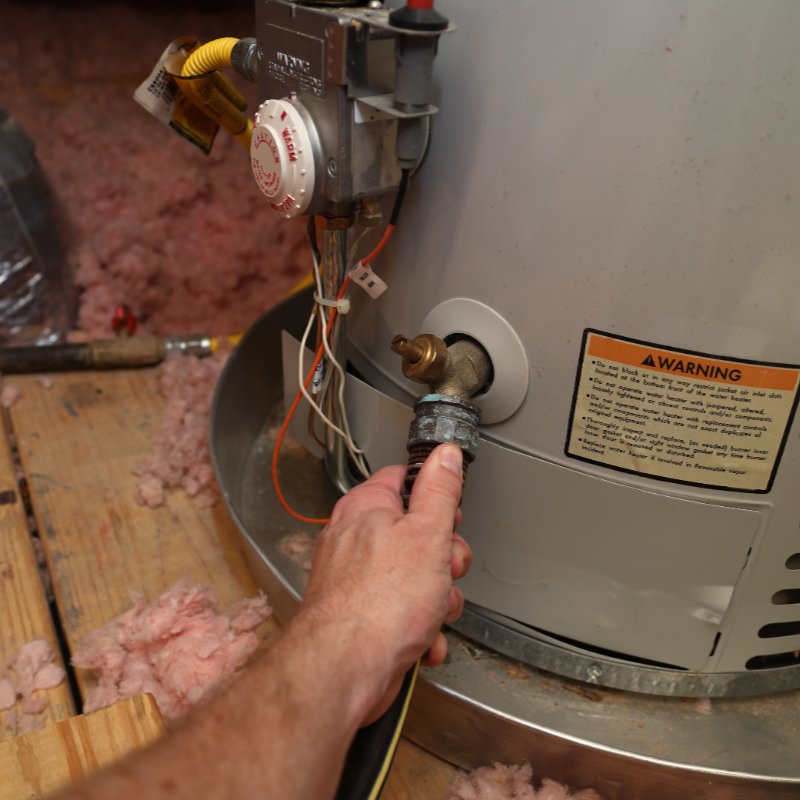Troubleshooting Standard Water Heater Malfunctions
Troubleshooting Standard Water Heater Malfunctions
Blog Article
Every person has got his or her own way of thinking in relation to Water Heaters Problems.

Imagine starting your day without your regular warm shower. That already sets a poor tone for the remainder of your day.
Every house needs a trustworthy hot water heater, however just a couple of understand how to handle one. One very easy way to maintain your hot water heater in leading shape is to check for faults consistently and also fix them as quickly as they appear.
Remember to switch off your hot water heater prior to sniffing about for faults. These are the water heater faults you are probably to encounter.
Water as well warm or also chilly
Every hot water heater has a thermostat that determines exactly how warm the water gets. If the water coming into your home is as well warm in spite of establishing a hassle-free optimum temperature, your thermostat might be defective.
On the other hand, as well cold water may be because of a stopped working thermostat, a busted circuit, or inappropriate gas circulation. For instance, if you utilize a gas water heater with a damaged pilot light, you would obtain cold water, even if the thermostat remains in best condition. For electric heating systems, a blown fuse may be the culprit.
Inadequate warm water
Water heaters come in lots of dimensions, relying on your warm water needs. If you run out of warm water before every person has actually had a bathroom, your hot water heater is also tiny for your family size. You need to take into consideration setting up a larger hot water heater storage tank or choosing a tankless water heater, which takes up less room and is much more sturdy.
Strange noises
There are at least five type of sounds you can learn through a hot water heater, yet one of the most usual analysis is that it's time for the hot water heater to retire.
First of all, you ought to be familiar with the normal sounds a water heater makes. An electric heating system might seem different from a gas-powered one.
Standing out or banging sounds normally suggest there is a slab of sediment in your tanks, and it's time to clean it out. On the other hand, whistling or hissing noises might simply be your shutoffs allowing some pressure off.
Water leakages
Leaks can originate from pipes, water links, valves, or in the worst-case circumstance, the storage tank itself. Over time, water will certainly corrode the storage tank, and discover its escape. If this happens, you require to change your water heater as soon as possible.
Nonetheless, before your change your entire storage tank, make sure that all pipelines are in location and that each shutoff works completely. If you still require assistance recognizing a leakage, call your plumber.
Rust-colored water
Rust-colored water means among your water heater components is worn away. It could be the anode rod, or the tank itself. Your plumber will be able to determine which it is.
Lukewarm water
No matter exactly how high you established the thermostat, you will not get any hot water out of a heating unit well past its prime. A water heater's efficiency might decrease with time.
You will also obtain lukewarm water if your pipes have a cross link. This indicates that when you switch on a faucet, hot water from the heater moves in alongside routine, cold water. A cross link is simple to place. If your hot water taps still run after closing the hot water heater valves, you have a cross link.
Discoloured Water
Rust is a significant cause of dirty or discoloured water. Deterioration within the water container or a stopping working anode pole can create this discolouration. The anode rod safeguards the container from rusting on the inside and must be examined yearly. Without a pole or an effectively functioning anode pole, the hot water quickly wears away inside the container. Contact an expert hot water heater specialist to determine if replacing the anode rod will take care of the issue; if not, change your water heater.
Conclusion
Ideally, your water heater can last ten years before you need a change. However, after the 10-year mark, you might experience any one of these faults more routinely. Now, you must add a brand-new water heater to your spending plan.
How To Troubleshoot 3 Common Water Heater Problems in Twin Cities
The Water Heater Is Leaking
A leaky cold water inlet valve A loose pipe fitting A leaky temperature and pressure relief valve A corroded anode rod A cracked tank Turn Off Your Water Heater:
Shut off your gas water heater by turning the gas valve on the unit to the “OFF” position. Shut off your electric water by switching its power off at your electrical panel. Look for a two-pole breaker labeled “water heater” and turn it to the “OFF” position. Move the ball valve connected to the water heater to be perpendicular to the piping at a 90° angle. Look for the Leak:
Depending on whether the water is coming from the tank's top or bottom, you’ll want to look for the leak in different locations.
If the leak comes from the top of the tank, carefully look for water escaping from the cold water inlet valve or loose pipe fittings. Rusted hot and cold water valves can have loose connections with the tank, with water leaking out of them.
https://mspplumbingheatingair.com/blog/how-to-troubleshoot-3-common-water-heater-problems
I ran across that article about Water Heaters Problems when scouting around the internet. Sharing is nice. Helping people is fun. Bless you for your time. Don't hesitate to pay a visit to our website back soon.
We've got you! Report this page